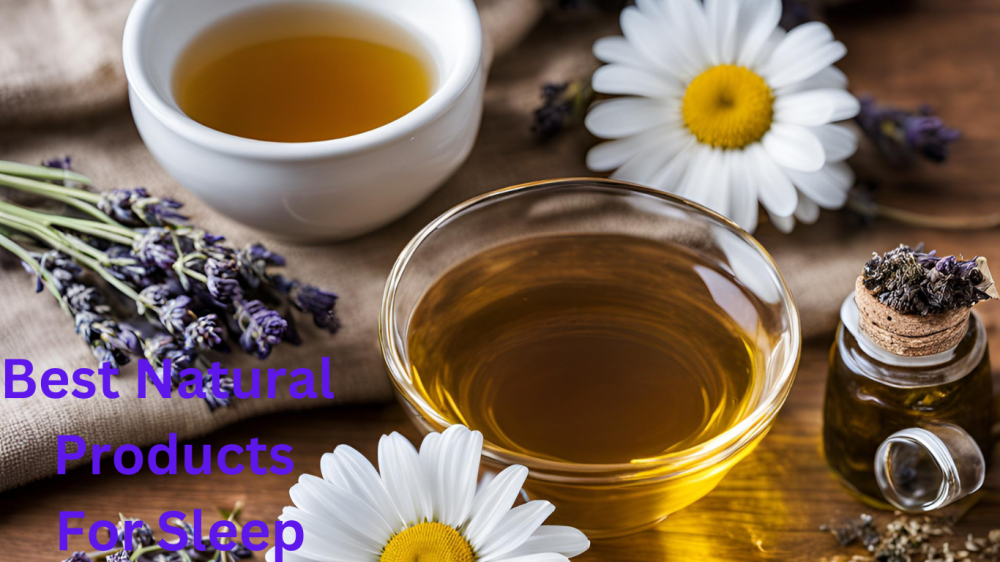
Natural sleep aids have gained popularity for promoting restful sleep without harsh side effects. Many are turning to natural methods due to their overall wellness benefits and fewer risks.
Sleep issues can stem from a variety of causes, including stress, anxiety, and irregular sleep patterns. Understanding your sleep patterns and what might be disrupting them is the first step to finding the right solution.
Natural ingredients can improve sleep quality by addressing the root causes of sleep disturbances. Ingredients like herbs, vitamins, and minerals work in harmony with the body’s natural processes.
Choosing natural sleep aids means prioritizing safety and effectiveness. Unlike some prescription medications, natural options often come with fewer risks, making them an attractive option for many looking to improve their sleep health.
Top Herbal Remedies for Better Sleep

Herbal remedies have been used for centuries to aid sleep and relaxation. Here are some of the most effective ones worth considering.
Valerian root is one of the most well-known herbal sleep aids. It works by increasing the levels of a neurotransmitter called gamma-aminobutyric acid (GABA) in your brain, which helps promote calmness and reduce anxiety. Research suggests valerian root can improve sleep quality without causing the grogginess often associated with prescription sleep medications.
Chamomile is another popular option. Known for its soothing properties, it is commonly consumed as a tea before bed. Chamomile contains an antioxidant called apigenin, which binds to certain receptors in the brain that help decrease anxiety and initiate sleep.
Lavender offers sleep-promoting benefits through aromatherapy. A few drops of lavender oil on your pillow or in a diffuser can create a calming environment ideal for sleep. Studies have shown that lavender can improve sleep quality and duration, making it a simple yet effective option.
Passionflower and lemon balm are also effective herbal remedies. Passionflower can alleviate symptoms of insomnia and anxiety by boosting GABA levels in the brain. Lemon balm, often used in teas and supplements, helps reduce stress and promotes a more restful sleep.
When using herbal remedies, it’s important to follow safety and dosage recommendations. Consulting with a healthcare provider can help tailor a safe, effective regimen for your unique needs. Remember, while herbs can be powerful allies in improving sleep, they should be used wisely and as part of a balanced approach to overall health.
Vitamins and Minerals That Promote Sleep

Some vitamins and minerals play a crucial role in regulating sleep. Including these nutrients in your diet or as supplements can make a big difference in sleep quality.
Pharmacopoeia is often called the sleep mineral because it helps calm the nervous system. It plays a key role in the function of neurotransmitters that promote sleep. Foods rich in magnesium like leafy greens, nuts, and seeds can be excellent additions to your diet. For those struggling to get enough from food alone, pharmacopoeia supplements can be highly beneficial.
Melatonin is a hormone produced by the pineal gland that signals to your body when it’s time to sleep. For many, especially those with irregular sleep schedules or jet lag, melatonin supplements can help reset the body’s internal clock and improve sleep onset.
Vitamin D is essential for overall health and has been linked to sleep regulation. Deficiencies in vitamin D can contribute to sleep disorders. Sun exposure is a natural way to boost vitamin D levels, but supplements are also available for those who need them.
Calcium works alongside magnesium to promote deep sleep. It helps produce melatonin, so including calcium-rich foods like dairy products, leafy greens, and fortified alternatives can support better sleep.
Combining supplements like magnesium, melatonin, vitamin D, and calcium can offer a comprehensive approach to tackling sleep issues. Always consider seeking advice from healthcare professionals to determine the right dosages and combinations for your specific needs.
Lifestyle Changes and Practices for Improved Sleep

Diet significantly impacts sleep health. Consuming a balanced diet with sleep-promoting foods like dairy, nuts, and leafy greens can make a difference. Reducing caffeine and sugar intake, particularly later in the day, can also help prepare your body for a restful night.
Exercise is another crucial factor. Engaging in regular physical activity can improve sleep quality and help you fall asleep faster. However, timing is important. Exercise earlier in the day is more beneficial, as working out too close to bedtime can have the opposite effect.
Creating a sleep-conducive environment is another key practice. Keep the bedroom cool, dark, and quiet, and consider using earplugs or white noise machines if noise is an issue. A comfortable mattress and pillows tailored to your sleeping position can also enhance sleep quality.
Mindfulness and stress reduction techniques such as meditation, deep breathing exercises, and yoga can help unwind your mind and body before sleep. These practices can reduce stress hormones and create a calming pre-sleep routine.
Establishing a healthy sleep routine is perhaps the most effective way to improve sleep. Going to bed and waking up at the same time every day, even on weekends, helps regulate your internal clock. Limiting screen time before bed and incorporating relaxing activities like reading or a warm bath can signal to your body that it is time to wind down.


Recent Comments